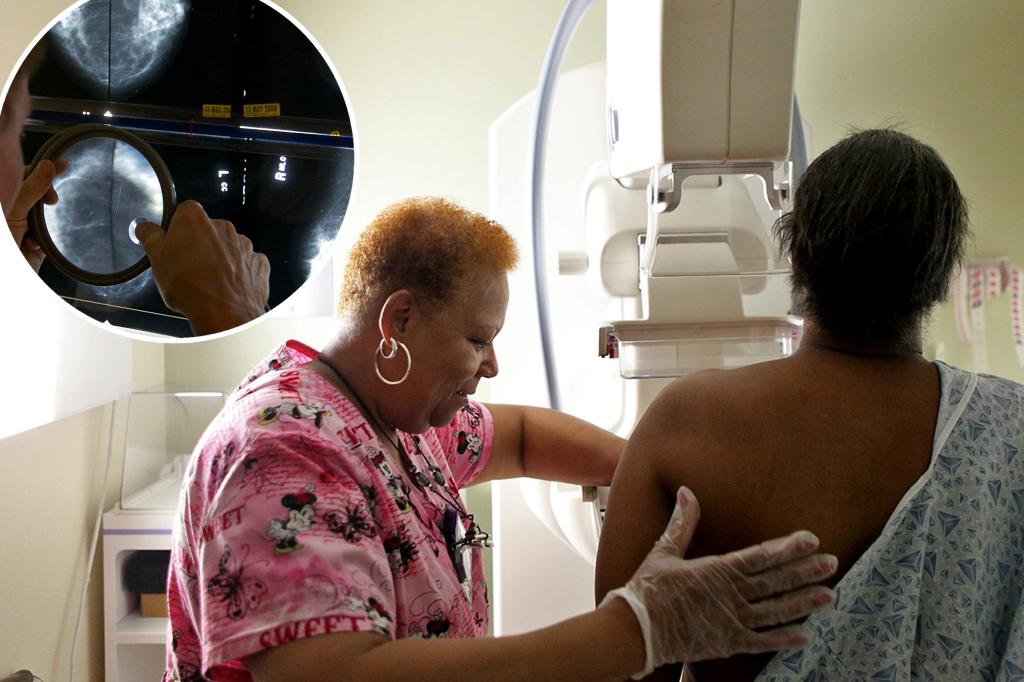Annual mammograms are recommended forever for breast cancer survivors in many countries, including the US, but a large British study found that less frequent screenings are just as good.
Annual check-ups aim to monitor whether the cancer has returned. All of those tests cause anxiety for patients and cost money.
Until now, there was no strong evidence about when women should have an annual mammogram, said Janet Dunn of the University of Warwick, who led the study, which was funded by the research arm of the UK’s National Health Service.
The study showed less frequent mammograms were just as good as an annual schedule for breast cancer survivors age 50 and older.
“It’s really about giving women the all-clear a little bit earlier if you can,” Dunn said. The findings are being discussed Friday at the San Antonio Breast Cancer Symposium. Unpublished studies have not yet gone through full peer review.
Researchers followed more than 5,200 women. The participants were 50 years of age and older, and had undergone successful breast cancer surgery, mostly lumpectomy.
 A breast cancer patient undergoes an examination at the Lurie Cancer Center’s Hispanic Breast Cancer Clinic at Northwestern Memorial Hospital in Chicago. TNS
A breast cancer patient undergoes an examination at the Lurie Cancer Center’s Hispanic Breast Cancer Clinic at Northwestern Memorial Hospital in Chicago. TNS
After three years of annual screening, half were randomly assigned to get mammograms every year and the other half to get less frequent ones.
Both groups did well, with very similar results. Six years later, 95% of both groups were still cancer-free. Breast cancer resistance was 98% in both groups.
“This is an eye-opening study,” said breast cancer expert Dr. Laura Esserman of the University of California, San Francisco, who was not involved in the new study but is leading research on personalized approaches to screening. “I think people will be very surprised.”
The new study is “very strong,” but more research is needed to change US guidelines, said Corinne Leach of the Moffitt Cancer Center in Tampa, Florida. He led the development of the 2015 US guidelines that require unlimited annual screening for this type of patient.
“One study alone usually doesn’t move the needle on guidelines,” Leach said. “This study inspires other researchers to do more work in this area. And that’s what can lead to change.”
In the new study, most women in both groups followed their prescribed screening schedule. Some in the annual group missed the screening and some in the less frequent group were screened ahead of schedule. When the researchers analyzed the findings based on what the women actually did, the conclusions remained the same.
Survivors “can breathe easy” three years after surgery because they resume less frequent mammogram schedules, Dunn said.
 A radiologist examines a mammogram for breast cancer in Los Angeles. AP
A radiologist examines a mammogram for breast cancer in Los Angeles. AP
The findings are likely to change practice in the UK and “will be influential globally,” he said.
How often is less often? In the study, it depends on the type of surgery.
In the less frequent screening group, women who have had a mastectomy have a mammogram once every three years. Those who have had a lumpectomy, also called breast conserving surgery, have a mammogram every two years.
The findings did not apply to younger breast cancer survivors, who were excluded from the study and tend to have more aggressive cancers. And women who have had both breasts removed do not need a mammogram.
“It’s time we have a more personalized approach to screening, not just for women who have never had breast cancer, but for those who have,” Esserman said.
The Associated Press Department of Health and Science receives support from the Howard Hughes Medical Institute Science and Education Media Group. AP is solely responsible for all content.
Categories: Trending
Source: thtrangdai.edu.vn/en/



